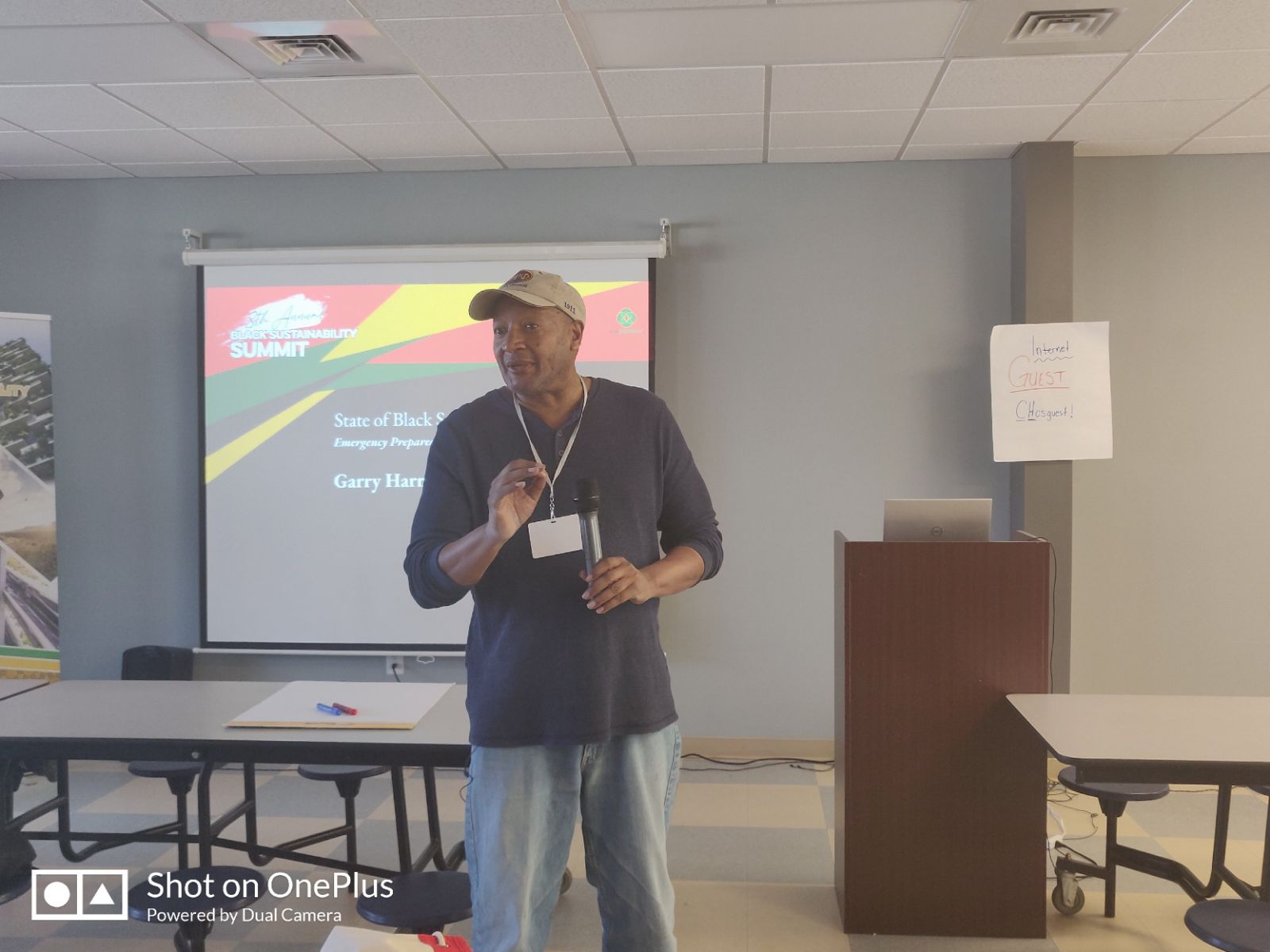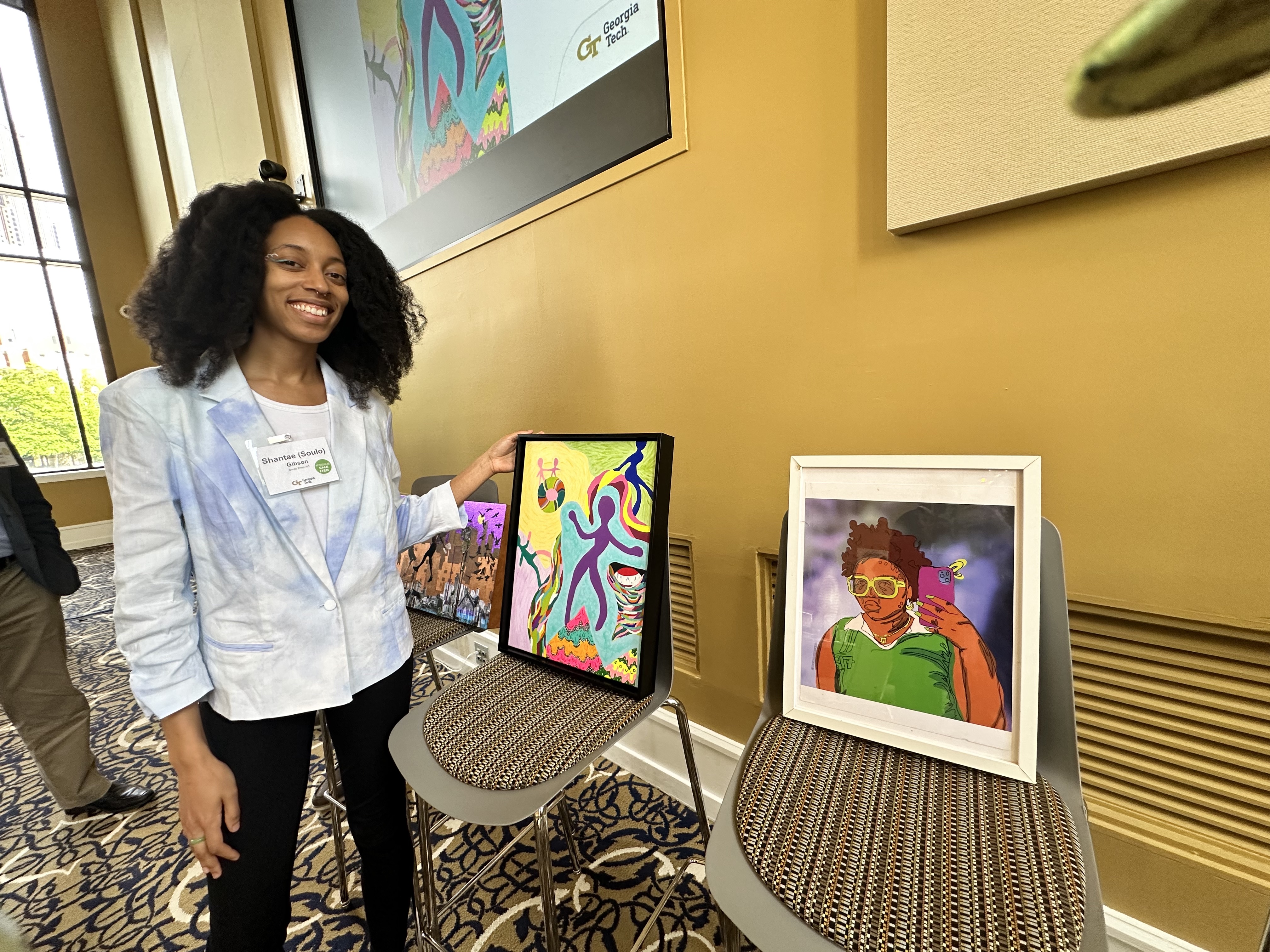At the beginning of 2024, SCoRE launched an External Advisory Council, composed of key partners with deep expertise in sustainability, innovation, and community engagement. This group is supporting SCoRE’s transition and advancing our new mission and scope: engaging faculty, students, and staff in long-term, strategic research and education collaborations with community partners, focusing on sustainability in the Atlanta region, the state of Georgia, and the Southeast. In particular, Advisers will draw on their expertise and experiences to guide SCoRE on community-engaged research and Community Benefit Plans related to emerging clean energy technologies. The group has already made significant contributions: they served as moderators and panelists at the SCoRE - Strategic Energy Institute co-hosted symposium, Advancing Emerging Clean Energy Technologies for Community Benefit and Decarbonization: Continuing the Conversation just last month. Additionally, the EAC has, through its network, already brought new partners, such as local artists and arts organizations into SCoRE’s orbit and, by extension, that of national leaders, working at the intersection of equity, community engagement, and clean energy technology.
We are so honored the following individuals agreed to join the council; the SCoRE staff is deeply proud to work alongside them:
Jay Bassett, GT Alumnus and Sustainability Advisor
Pamela Fann, Founder and CEO, Integrated Solutions
Garry Harris, President, Center for Sustainable Communities
Dr. Erica Holloman-Hill, Chief Envisioning Officer and Chief Scientific Officer, Ayika Solutions
Dr. Yomi Noibi, ECO-Action
Alicia Scott, Georgia State Director, Energy Foundation
Janelle Wright, Environmental Justice Programs Manager, West Atlanta Watershed Alliance
Once a month over the remainder of 2024, we will profile one EAC member. This month, we are delighted to share an interview with Garry Harris, President of the Center for Sustainable Communities and the Sustainability Solutions Group and Institute. As a longtime partner of SCoRE, Garry has had myriad engagements with courses and projects, and has mentored many teams of Computer Science Junior Capstone students. Recently, SCoRE’s Community Engagement Specialist Anna Tinoco-Santiago caught up with Garry at the 2024 Capstone Expo.

Anna Tinoco-Santiago: Garry, thank you so much for taking time out of your day to meet with me, I know you have so much going on, so I really appreciate it. I heard so much positive feedback from the students who you mentored in the Computer Science Junior Design Capstone Expo. I just want to say how valuable that was, not only to guide them during the process, but the fact that you offered to stay in touch with them even beyond graduation. I know that not a lot of people do that, so that’s meaningful.
Garry Harris: Thank you, well students are at the forefront of a lot of the programing that we do. When we allow students to use their science, engineering, math, and technology, skills when they work with us, they really like it. So far we've had approximately 300 students come through our doors and grab model projects and perform really well in terms of providing feedback to the communities along with useful products and services. This morning, we launched one of our projects called EVs For All which is one of several technologies that we've developed under our “Just Science” umbrella. Just Science is [an effort] to roll out solutions into communities that maximize the benefits whether it be mobile transportation as it was this morning, or housing or food access.
ATS: And on top of all of that incredible work you’re doing, you were able to join SCoRE’s External Advisory Council (EAC), which we’re so excited about! Can you tell me how you got connected with SCoRE; how did that relationship form?
GH: Almost a decade ago when Serve-Learn-Sustain was just forming, I met Jennifer Hirsch (the director of SLS) at a City Hall meeting. She was speaking at a mayor’s council meeting that was focused on sustainability, and I heard her mention that she was looking to partner with community organizations, so I hooked on and didn’t let go. So technically, I’ve been there from the beginning.
ATS: Being part of the EAC, what do you hope to learn?
GH: I hope to learn more about new emerging technologies, especially with my engineering background. I started off with a 5th grade project, learning about energy and I just kept going from there. It’s been a part of who I am for such a long time, so as you can imagine, I’m really excited about these new emerging technologies such as hydrogen, solar, offshore wind, and direct air capture; the list goes on and on! What excites me the most is that I was around in the early days of nuclear energy, but I didn’t see much equity, outreach, or engagement involved in that space. Now, however, we have the opportunity to look at these emerging technologies through a Just Science lens and from an energy justice perspective with access for all, whether it’s in terms of workforce development or small business development. It’s important that as we’re lifting [up] these new technologies, we are not leaving behind our communities.
ATS: How important; Garry thank you for sharing that. I know that SCoRE’s EAC is not the only board you serve on, so what keeps you engaged and serving on boards?
GH: Serving on boards is so important because you’re able to stay ahead of the game, and you’re there creating the policies for that entity, and standing up the direction of the mission and vision. However, it goes beyond that because it also has that impact on everyone that the entity is connected with too. I love being part of the governance team because I like being a leader. It gives me the opportunity to transfer knowledge and motivate others to move policies and projects in the right direction.
ATS: You are president of Center for Sustainable Communities and the Sustainability Solutions Group, you mentor students, you serve on several boards, amongst many other things, how are you so successful at juggling it all?
GH: I prioritize all my events by community impact, and community engagement. I then assess short term and long-term commitment and of course if it matches my skill set and I’m knowledgeable about the topic, then I do it.
ATS: It sounds like you have a great formula and guiding force that helps you identify where you are dedicating your time.
GH: Everything I do is about purpose. I’m trying to create a more just, sustainable, resilient, and equitable world for all. For me, that requires waking up at 4:30 AM [to] start tackling the issue at hand. So, if I have the opportunity to create something from the beginning, and then design, develop, and deploy a useful product, it makes me feel great.
ATS: It sounds like that’s what keeps you energized and motivated. On a similar topic; is there a book, article, or film that you feel aligns with what you believe or the work you’re doing?
GH: Yes, the film Star Trek: First Contact. The film is set place after WW III, 600 million people are dead, most of the Earth’s species have been wiped out, and there is chaos everywhere. One of the characters from the film, Zefram Cochrane builds a war ship called the Phoenix and with the support of some alien visitors, is able to launch the war ship. As it goes up, people . . . see that humankind has learned how to travel faster than the speed of light. This is a pivotal moment in time because the world as we know it, changes. World hunger, poverty, homelessness, war, are all eliminated 50 years after that specific moment. I believe where we are right now is a special moment in time as well. We have funding coming in from the federal government, we have partners like SCoRE supporting us as well, we’ve accumulated so much knowledge, and now is the opportunity to use that knowledge. With our partners, networks, and new staff, we have the perfect storm, just like in the film. The difference here is that in addition to the issues that were solved in the film, we have the opportunity to solve pollution, climate change, housing, and educational disparity issues while implementing clean energy. That fictitious moment in First Contact really resonates with me because I know when we all work together through collaboration and coalitions, we share a similar agenda that allows us to come together to tackle these issues, which is so powerful!
ATS: Speaking of sharing knowledge, what advice would you have for a young professional who is interested in following a path similar to yours?
GH: Follow a path that allows you to maximize who you are, highlight the skills you have, and that allows you to give back and create a positive impact if you’re an engineer, a scientist, a technology developer, or something completely different. Make sure that in the process, you’re creating an eco-system for yourself that’s about justice [and] that allows you to be best person you can be so that when life throws something difficult your way, you’ll have people lined up to support you through that that challenging time.
ATS: Lastly, for fun, what do you do when you’re not working?
GH: I stay active in the gym and of course, I watch Star Trek!

